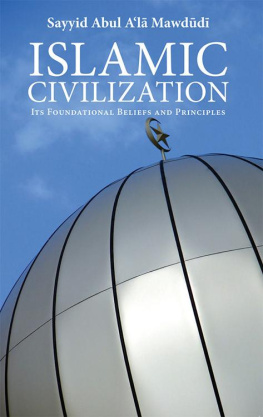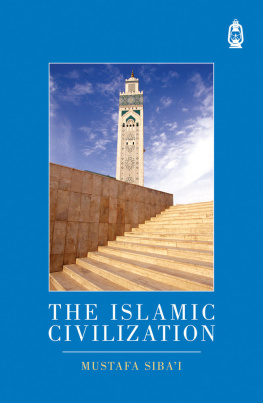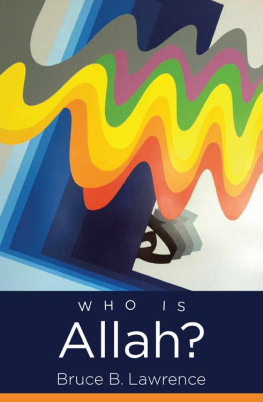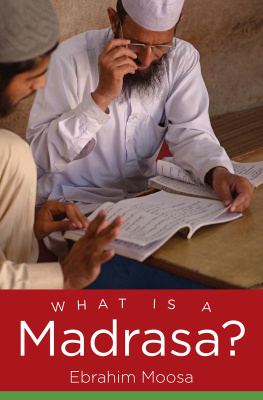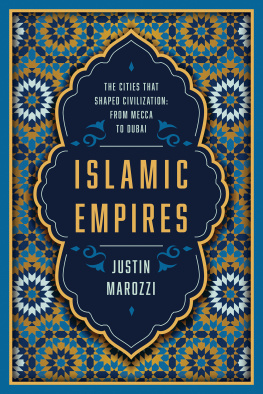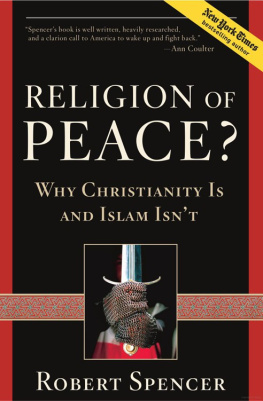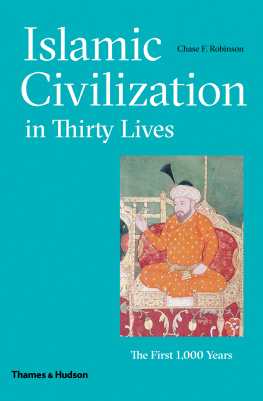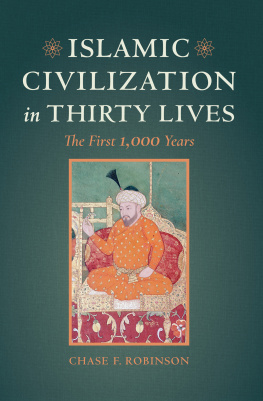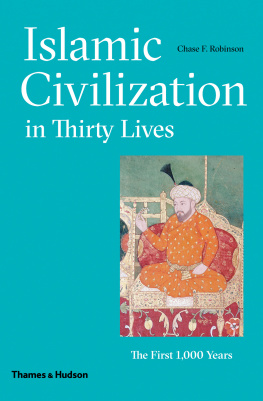Ali Dr - The Crisis of Islamic Civilization
Here you can read online Ali Dr - The Crisis of Islamic Civilization full text of the book (entire story) in english for free. Download pdf and epub, get meaning, cover and reviews about this ebook. year: 2009, genre: Religion. Description of the work, (preface) as well as reviews are available. Best literature library LitArk.com created for fans of good reading and offers a wide selection of genres:
Romance novel
Science fiction
Adventure
Detective
Science
History
Home and family
Prose
Art
Politics
Computer
Non-fiction
Religion
Business
Children
Humor
Choose a favorite category and find really read worthwhile books. Enjoy immersion in the world of imagination, feel the emotions of the characters or learn something new for yourself, make an fascinating discovery.
The Crisis of Islamic Civilization: summary, description and annotation
We offer to read an annotation, description, summary or preface (depends on what the author of the book "The Crisis of Islamic Civilization" wrote himself). If you haven't found the necessary information about the book — write in the comments, we will try to find it.
Ali Dr: author's other books
Who wrote The Crisis of Islamic Civilization? Find out the surname, the name of the author of the book and a list of all author's works by series.
The Crisis of Islamic Civilization — read online for free the complete book (whole text) full work
Below is the text of the book, divided by pages. System saving the place of the last page read, allows you to conveniently read the book "The Crisis of Islamic Civilization" online for free, without having to search again every time where you left off. Put a bookmark, and you can go to the page where you finished reading at any time.
Font size:
Interval:
Bookmark:




ALI A. ALLAWI
To SFH - who lit the way
To SHR - who lived the way
To the Folk of the Hyderkhana - who travelled the way
The Iraq of the 1950s, in which I was raised, as well as the broader Arab and Islamic world of that time, were at a stage when the secular elements in society - the ruling political class and the cultural and intellectual elites - had moved far away from an overt identification with Islam. It then appeared to be only a matter of time before Islam would lose whatever hold it might still have had on the peoples and societies of the Muslim world. Even the term `Muslim' was unusual for the period; Muslim countries identified themselves more in terms of national or ethnic status or ideological affinities.
Islam was not a noticeable factor in daily life. Religion was a mandatory course in school, it is true, but the life around us was clearly decoupling from Islam. Nobody taught us the rules of prayer or expected us to fast in Ramadan. We learnt the shorter verses of the Quran, but the holy book itself was kept on shelves or in drawers, mostly unread. The pilgrimage to Mecca was only for the old, atoning for the transgressions in their lives, in preparation for their inevitable end - more in the nature of an insurance policy than an act of piety. I don't recall ever coming across the word jihad in any contemporary context. The prevailing rhetoric was more to do with Arab destiny and anti-imperialism. A bit of religious fervour popped up during the Suez Crisis of 1956, when Cairo radio blared out martial songs calling for divine support against the Anglo-French-Israeli invasion, but that was about it. Women, not only in my own family but throughout the urban middle classes, wore only western clothes. They had long ceased to wear the hijab. The only connection to a pre-modern past that I had was my grandfather, who always wore the distinguishing - and dignified - dress of robes and turbans of an old-line merchant.
Apart from religious holidays, the public rituals of Islam were not widely observed. Friday congregational prayers were held, but certainly not with the same degree of participation or vigour that a person would notice nowadays. The formerly ubiquitous Sufi orders had lost most of their devotees, and what was left of them had become the object of faint ridicule by a knowing elite. I came across possibly one of the last of the wandering dervishes of the area - a galandar - who showed up in front of our house in his patched frocks, carrying a ritual pike and a bowl. He was fed and sent on his way. Since, I have only ever seen one other such as him. The Shia rites of Muharram were celebrated, often wildly, but we were advised to stay well away from them. They were somewhat unbecoming for refined folk, who preferred to hold semi-literary soirees to remember the passion of the martyr Imam Hussein. Tears were ritually shed and after a short catharsis, normal conversation returned. Modernity was flooding in everywhere, and people seemed to want more of it. Cinemas and snack bars, cabarets and country clubs, freely flowing alcohol and mixed parties: Baghdad was turning into Babylon, its hedonistic predecessor of yore. And it was not much different, as memoirs of the times amply testify, in Casablanca, Cairo, Damascus, Istanbul, Tehran, Karachi and Jakarta. Secularism had the Muslim world by the throat. It may not have been in the very same form that I had experienced, but the result was the same. Islam was ignored, marginalized or rejected by the modernizing classes. It continued to provide some form of ethical scaffolding to people's lives, but even that became frayed as people moved into a modern and urban environment.
Neither did Islam's public position improve materially in the decade of the 1960s. This was the era of ascendant military dictatorships, nationalist ideologies and socialist and populist movements that dominated the landscape of the Islamic world. No one could foresee the comeuppance that these regimes would face in less than a decade and the public discrediting of their models for reform and modernization. The defeat by Israel of the combined Arab armies in the Six Day War was only one of the events that dramatically tipped the balance in favour of a resurgent Islam - a process which accelerated in the 1970s. Political Islam began to raise its head after years of lying in wait, being either ignored or persecuted. Another current also rose imperceptibly in those times: that of a re-spiritualized Islam that was breaking away from the hold of the traditional religious orders but remained in the shadows. It affected far fewer people and its presence and influence were scarcely felt in a world convulsed with dramatic political changes.
By the end of the 1970s the tide of militant Islamism seemed unstoppable and increasingly defined the idea of a resurgent Islam. The Iranian Revolution and its aftermath convulsed the planet. Political Islam erupted on the global stage in a huge social and political revolution and, whatever we may think of it, embodied the hopes and fears of millions of people around the world. A parallel revolution was also engulfing the world of Sunni Islam with the struggle against the Soviet invasion of Afghanistan and the rise of a radical jihad-inspired culture. The world in general and Muslims in particular were confronted with a host of questions and assertions about the role of Islam in society and politics. I daresay that every Muslim of that period was exercised, in one form or another - whether recoiling in alarm, being perplexed and anxious, or being an enthusiastic advocate - at the rise of political Islam and the increasingly assertive and controversial role of Islam in society.
For a long time, the two worlds of Islam which impacted on me - the outer world of political and social action and the inner world of spiritual and moral realization - seemed entirely at odds with each other. One was angry at its subordination, insistent on recognition and power, and challenging the status quo; the other was serene, introspective and immersed in the intangible. The fabric of the first was societies and nations; that of the second was the self and the individual. The rituals of worship in Islam were supposed to bridge these worlds, but they were bent to suit other demands. I began to recognize that the essential unity of Islam had been greatly diminished, if not quite yet destroyed. People could no longer move effortlessly between these two worlds.
Momentous crises affected the Islamic world in the past quarter century: the Iranian Revolution, the Iran-Iraq War, the invasion of Afghanistan, the siege of the Bosnian Muslims, the sectarian riots in India, the civil wars in the Sudan and Algeria, the Second Gulf War, the rise of the Taliban, the eruption of global terror linked to radical political Islam, and the invasion of Iraq and the sectarian carnage it unleashed. All these demanded engagement and action, no doubt, and they tilted the balance towards the political arena. As I became more involved in these crises in my writings, my speeches and then in direct political action, I found that only a few of the Muslims I encountered in the political arena could resonate with the spiritual or ethical aspects of Islam. In particular, Islamists behaved no differently from the rest, and often worse, as the prospects for power loomed for them in a number of countries, including Iraq. The Islam that I had experienced was increasingly devoid of any deeply ethical content and was at odds with my understanding of its own legacy. That is not to say that the preoccupation of the vast majority of Muslims with their outer condition was in any way reprehensible. But it was deficient, as it framed the crises Islam was facing mainly in terms of the political, social or jurisprudential aspects of the religion. The moral education of individual Muslims was an altogether different matter which did not fuse with the preoccupations of the leaders of the Muslim world, whether those in power or in opposition, in Muslim lands or in the growing diasporas in the West. Muslims may have been overwhelmed by the scale of the real or imagined disasters befalling them, but this should not have stopped them from holding up a mirror to themselves. What that mirror would have shown was a fading of their own civilizational drive and an increasingly obvious indifference to, and often abandonment of, the foundational ethical and spiritual bases of the faith.
Font size:
Interval:
Bookmark:
Similar books «The Crisis of Islamic Civilization»
Look at similar books to The Crisis of Islamic Civilization. We have selected literature similar in name and meaning in the hope of providing readers with more options to find new, interesting, not yet read works.
Discussion, reviews of the book The Crisis of Islamic Civilization and just readers' own opinions. Leave your comments, write what you think about the work, its meaning or the main characters. Specify what exactly you liked and what you didn't like, and why you think so.


